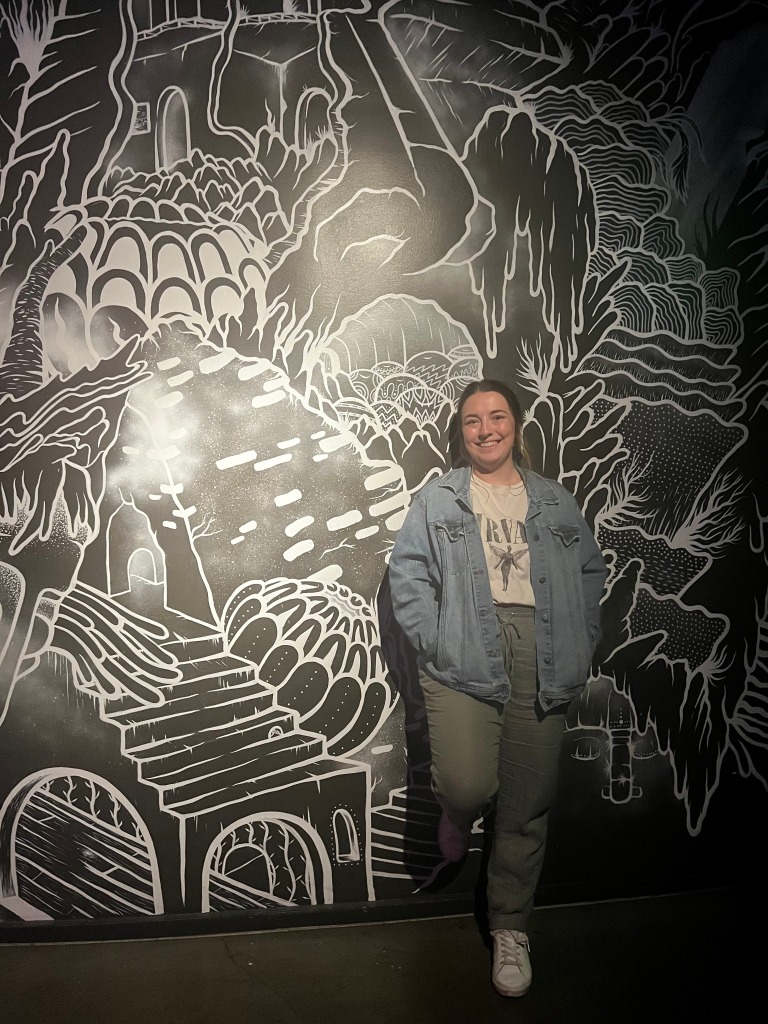By Erin Gabriel
My sister has the biggest crush on Lewis Capaldi, the Scottish singer-songwriter who first gained attention in 2017 with his debut single and viral hit Bruises. If you’ve been living under a rock and don’t know who he is (I am speaking to my 30-something millennial cousins who had no idea who he was) here is a photo for reference:
Sex icon, amiright? At this point, my sister would quote the viral TikTok sound, “That’s mine. I’ma stick beside him.” Anywho, I regress…
Since my sister introduced me to him I have also been a big fan. My favorite song of his is Before You Go, which is a deeply emotional song he wrote about the loss of his aunt, who took her own life.
In the song, Capaldi reflects on the pain he felt not being able to help his aunt, the regret he carries, and the thought that he could have done something to prevent it. The song resonated with me because of the loss of loved ones in my own life. As a teen, I lost a friend to suicide and had a close family member attempt. Ultimately, the song is a powerful reminder of the importance of mental health awareness.
However, what I love so much about Capaldi is his ability to find balance in tackling really tough topics like suicide with humor and self-deprecating jokes—which he often showcases on his TikTok. His lighthearted and playful social media presence partnered with his more emotional and poignant music shows the duality each of us has in our own personality. The dichotomy examines how we appear to others and the way we are on a deeper level.
When he announced he was coming to Mission Ballroom in Denver, Colorado, my sister and I quickly bought our tickets—and right around the same time, his Netflix documentary How I’m Feeling Now came out. What better way to prepare for his concert than to force all of our family and friends to watch all his music videos with us and his documentary that focused on his mental health in dealing with anxiety and Tourette’s syndrome. The documentary just makes him feel even more relatable. It makes you want to grab a Scottish whiskey with him, joke, and give Capaldi a big hug.
Around the same time we watched his documentary, a lot of TikTok videos went viral of fans singing Capaldi’s song for him when he had to suddenly stop singing due to a Tourette’s syndrome flair-up. The audience quickly took over and belted the rest of the final chorus while Capaldi took the time he needed.
When my sister and I attended his concert we experienced something similar. You could see his struggle that manifests itself as a shoulder twitch. Capaldi has said in interviews, “some days it’s more painful than others and some days it’s less painful. It looks a lot worse than it is. Sometimes it’s quite uncomfortable … but it comes and goes.” Even so, he gave a beautiful performance and sounded exactly the same live as recorded, and his sense of humor is unbeatable. I find him genuinely hilarious.
What I was not anticipating was having my own inner crisis the days preceding his concert about something I’d been suppressing for quite a few years. My own struggle with what Healthline refers to as “anxiety shaking” or “anxiety tremors” caused by your body and brain interpreting this as fight, flight, or freeze which primes your muscles to act leading to trembling, shaking, twitching, etc.
I was naturally a shy child. I’m not sure what caused my anxiety to lead to a full-blown anxiety disorder but by the time I reached middle school, I was experiencing somatic symptoms due to my anxiety. At the time, I had no idea what was causing it. For years I subconsciously thought I was losing it. I kept it mostly to myself and a few close friends but when I couldn’t control my physical reactions to my anxiety more and more people found out which led to more and more anxiety.
I sought medical attention multiple times with no real solution presented. It all came to a head when I was in college and my friends became so concerned they called 911. I was brought to the hospital and interrogated for suspicion of being on something instead of being given the support I desperately needed.
Fast forward and after finally finding a therapist I trust, working with a psychiatrist, getting on anxiety medications, meditating, going to yoga, etc., I am no longer struggling with somatic symptoms due to anxiety. However, I still struggled mentally with a lot of embarrassment and shame around it.
Seeing Lewis Capaldi bravely and authentically be himself despite the judgment that could come is something that has been so deeply healing for me. I was unable to even articulate this pain I was going through to myself until following Capaldi’s journey. All of that to say, if you’re struggling, you’re not alone. If you’re struggling and can find the bravery within yourself to share it you are helping so many others who are battling in silence and isolation. Thank you Lewis Capaldi for being a hilarious dick-head on TikTok, for being vulnerable with us through your music, and for sharing your story.
Erin Gabriel (she/her) is an educator, writer, social media manager, and former digital journalist for CNN. Erin currently lives in Denver and loves anything health & wellness/professional development related as well as reading, being outdoors, and traveling. She is passionate about social justice issues but has specifically worked in the realms of improving the quality of public education, fighting for immigrant/refugee rights, and advocating for disability rights.




